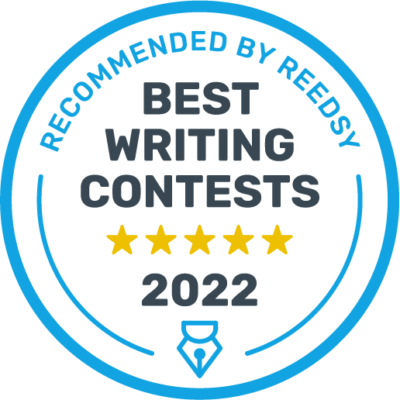Well, it’s December again. Like every year, I had the best intentions. I was going to write more. Specifically, I was going to write more poetry. I like what the process of writing poetry does for my brain. It makes me more concise, more richly metaphorical, and it stretches my vocabulary in the quest for the perfect word or phrase. All of these things make me a better prose writer, too.
Only… it’s December. And the year kind of got away from me. How about you?
Fortunately for ALL of us, YeahWrite’s December tradition is to give everyone another chance at every poetry slam. That’s right: every single one. Are you ready for this? Let’s take a look at your options for December!
- January: Blank verse. This form of poetry has meter but no rhyme. It’s not free verse, which has no rules at all, but it’s great practice for other forms, and a good way to sneak in writing that sounds like it goes together. You know who’s into blank verse? Shakespeare.
- February: Ekphrastic poetry. There’s no meter or rhyme scheme, but there’s a content requirement. You need to put a piece of visual art (painting, sculpture, whatever you like) into your poem. Sound interesting?
- March: There’s no March poetry slam, but you might want to look at the March post anyway, because we talked about synesthesia. Synesthesia is “a perceptual phenomenon in which stimulation of one sensory or cognitive pathway leads to automatic, involuntary experiences in a second sensory or cognitive pathway.” That’s a lot of words to say “you might hear color or see flavors.” In a poetic sense, synesthesia is using words that ordinarily would relate to one sense (or more) to describe an impression or experience from another sense. It’s a little bit more than a metaphor, but a little bit less than personification.
- April: April was National Poetry Month, and will be again in 2020! Stop by and check out some of our editors’ favorite poems and get a refresher on reading and critiquing poetry.
- May: the Lune. This three-line, 13-syllable form was created in the 1960’s. Although we restricted May’s form to the Kelly lune, you’re also welcome to write a Collum lune now.
- June: the hay(na)ku. It’s a Filipino form with a name that translates to “OMG” and a strict wordcount for each verse. Can you do it?
- July: We explored poet laureate Joy Harjo’s poem She Had Some Horses. Interested in exploring and eveloping a metaphor? Check it out.
- August: Sevenlings. Seven lines, three stanzas, one extremely salty critique of David Foster Wallace. Give it a shot!
- September: We take a page from Beyonce’s (or Natalie Diaz’s) songbook – literally – with poetry that builds on existing song lyrics. Got a song you love? This is your chance to use your favorite line.
- October: Elegies. Write a three-part poem for something lost or gone. You can add other poetry forms or requirements, but the heart remains: this is a poem about loss.
- November: the Kimo. A three-line form with no motion, capturing a moment suspended in time. A little longer than a haiku, and with a few less rules, the kimo has no rhyme or meter, and is a great form if you’re pressed for time or ideas.
That’s a treasure trove of forms, with a sprinkling of techniques to boot! With only a month left in the year, I’ve still got time to make a poem happen, and y’all should help me nag Christine to finish the half-done poetry she swears is sitting in her drafts folder. So what about you? Can you make something happen before next year?
Speaking of next year, we’re going to take a year to do some deeper dives into technique, using something we tried this year. No spoilers, but with three years of poetic forms under our belt, it’s time to lean into that and really learn what makes poetry tick, beyond counting words and syllables and keeping that one tab in your browser open to RhymeZone.
But in the meantime… see you on the grid!
About the author:

Rowan submitted exactly one piece of microfiction to YeahWrite before being consumed by the editorial darkside. She spent some time working hard as our Submissions Editor before becoming YeahWrite’s Managing Editor in 2016. She was a BlogHer Voice of the Year in 2017 for her work on intersectional feminism, but she suggests you find and follow WOC instead. In real life she’s been at various times an attorney, aerialist, professional knitter, artist, graphic designer (yes, they’re different things), editor, secretary, tailor, and martial artist. It bothers her vaguely that the preceding list isn’t alphabetized, but the Oxford comma makes up for it. She lives in Portlandia with a menagerie which includes at least one other human. She tells lies at textwall and uncomfortable truths at CrossKnit.






